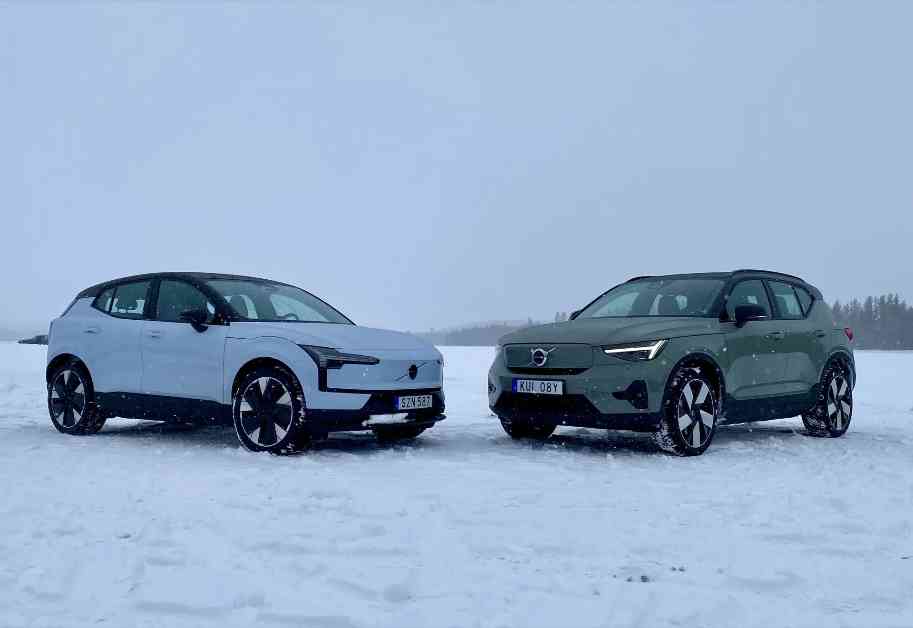Volvo’s latest model, the EX30 small electric crossover, will not be hitting the U.S. market this summer as originally planned. The company has announced a delay in deliveries until 2025, citing tariffs imposed by the U.S. on EVs made in China. The EX30 was set to be produced in China, but Volvo has decided to shift production to its factory in Ghent, Belgium.
Customers who had preordered the EX30 will be offered alternatives to drive other new Volvo models until the affordable electric vehicle is ready for delivery. The base model, the EX30 Core with a single motor and rear-wheel drive, was priced at $36,245, making it one of the most affordable EVs on the market. However, due to the delay, customers will have to wait a bit longer to get their hands on this budget-friendly option.
According to Volvo spokesperson Russell Datz, the decision to delay the EX30 was influenced by factors beyond the company’s control. Tariffs on EVs were a significant factor in this decision, with the Biden administration announcing an increase in tariffs on electric vehicles from 25% to 100%. This included tariffs on critical components such as lithium-ion batteries, further complicating the production process.
With the shift in production to Ghent, Belgium, Volvo aims to ramp up production and meet the demand for the EX30 in the U.S. market by 2025. The European Union has also proposed tariffs on EV imports from China, adding to the challenges faced by Volvo in bringing the EX30 to American consumers.
While there are no current plans for domestic production of the EX30 in the U.S., Volvo’s plant in Charleston, South Carolina, has started producing the 2025 Volvo EX90 electric three-row crossover SUV. The company is committed to delivering the EX30 to U.S. customers, although it remains uncertain whether the vehicle will still be designated as a 2025 model upon its eventual arrival.
As Volvo navigates the changing landscape of the global automotive industry, the delay in the EX30’s launch serves as a reminder of the challenges faced by automakers in the era of tariffs and trade disputes. Despite these hurdles, Volvo remains committed to providing customers with innovative and affordable electric vehicles in the near future.









